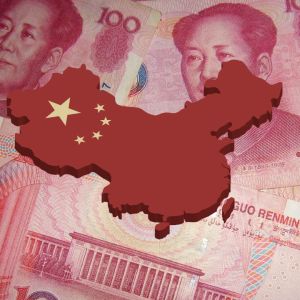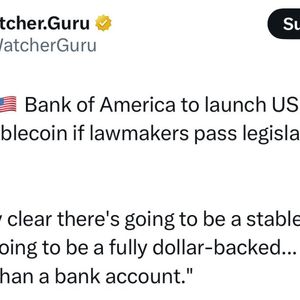China plans to start re-capitalizing some of its biggest banks in the coming months. The government wants to give the first group of banks, which includes Agricultural Bank of China Ltd. (ABC) and Bank of Communications Co. (BOCOM), at least 400 billion yuan ($55 billion) in new capital. According to reports , the plan could be completed as soon as the end of June. However, it is subject to change, and the amount for each bank is still being finalized. This is part of a larger plan announced last year to help the struggling economy. Exclusive: China plans to start injecting at least $55 billion of fresh capital into some of its biggest banks in the coming months https://t.co/yq25xQ3xP9 — Bloomberg (@business) February 26, 2025 China’s banking regulator first announced that it would add to the six biggest state lenders’ core tier-1 capital. Later, the Ministry of Finance said it would issue special national bonds to pay for the injections. This will help banks better manage risks and encourage them to lend. This means that China could give its biggest banks as much as 1 trillion yuan ($137 billion) in new capital. The money would mostly come from issuing new special national debt. Why is China recapitalizing? First off, after a series of stimulus policies, such as lowering housing rates and cutting key policy rates—lenders like Agricultural Bank and Postal Savings have been asked to help the economy over the past few years. As a result, they are facing record-low margins, falling profits, and rising bad debt. The last time something like this happened was two decades ago. At that time, the MoF issued special government bonds worth 270 billion yuan. The money from those bonds was invested in China’s four biggest state-owned banks, which more than doubled their capital. The capital increase was the first step in cleaning up the banking sector as a whole. A lot of non-performing loans (NPLs) were taken off of banks’ balance sheets and put in new “bad banks.” Analysts think that the plan for another capital injection means that the problem banks are having now might be pretty big. However, the top six banks have many times more capital than they need but still China is making its banking system stronger. Normally, Chinese banks use their kept profits to build up their capital buffers. Some also issue a lot of debt to take advantage of lower interest rates on the bond market. Therefore, why is the government intervening? The answer is linked to the growing demands on Chinese bank balance sheets. China’s banks, especially the big ones, are very important for carrying out economic and financial policies set by the government. The government tells banks to help struggling borrowers get loans, provide a financial safety net, and keep giving back money. Each of these actions stresses bank reserves. So, recapitalization is a way for big banks to say that they are having trouble meeting the demands on their balance sheets. Bank of Communications was founded in 1908, before modern China was established in 1911. It has an interesting history in China and Hong Kong. Source: Flickr A bank’s money problems are usually caused by not having enough cash on hand, not being able to pay its bills, or a mix of the two. As long as big banks keep renegotiating loans for people who are having trouble paying them back, liquidity will suffer. This is even worse if banks keep renewing loans that would otherwise go into default, which is also known as “evergreening.” More and more of a bank’s income may come from interest that will never be paid instead of real cash flows. In the worst cases, a bank’s balance sheet could be filled with assets that can’t be sold quickly and don’t bring in any cash. This could happen even though the bank’s financial records show no losses. A bank with enough capital could have a sudden liquidity crisis if these secret assets that are hard to sell build up. So, one of the most important effects of the bank recapitalization might not be better stability but rather more cash on hand. More cash means more capital. When banks get capital, they get cash, which is the most flexible asset. The flow of cash will be very important for the big banks to keep protecting the financial system and deal with their own growing cash flow problems. In the same way, if liquidity conditions rise at the big banks, it could be a sign of bigger problems with their ability to pay their debts in the future. The Chinese yuan weakens further Increased friction between the US and China is putting renewed pressure on the Chinese yuan. According to the China Foreign Exchange Trade System, the central parity rate of the Chinese currency renminbi, or the yuan, decreased by 6 pips to 7.1732 against the U.S. dollar today. In China’s spot foreign exchange market, the yuan is permitted to fluctuate by 2% from the central parity rate on each trading day. The central parity rate of the yuan against the U.S. dollar is determined by a weighted average of prices offered by market makers prior to the opening of the interbank market each business day. Now, the People’s Bank of China issued a 300 billion yuan medium-term loan. This resulted in net liquidity withdrawal pressures. The appeal of Chinese assets may diminish due to a stronger US dollar. This could impact the investment flows and earnings of companies that are significantly exposed to China. Cryptopolitan Academy: Tired of market swings? Learn how DeFi can help you build steady passive income. Register Now

















